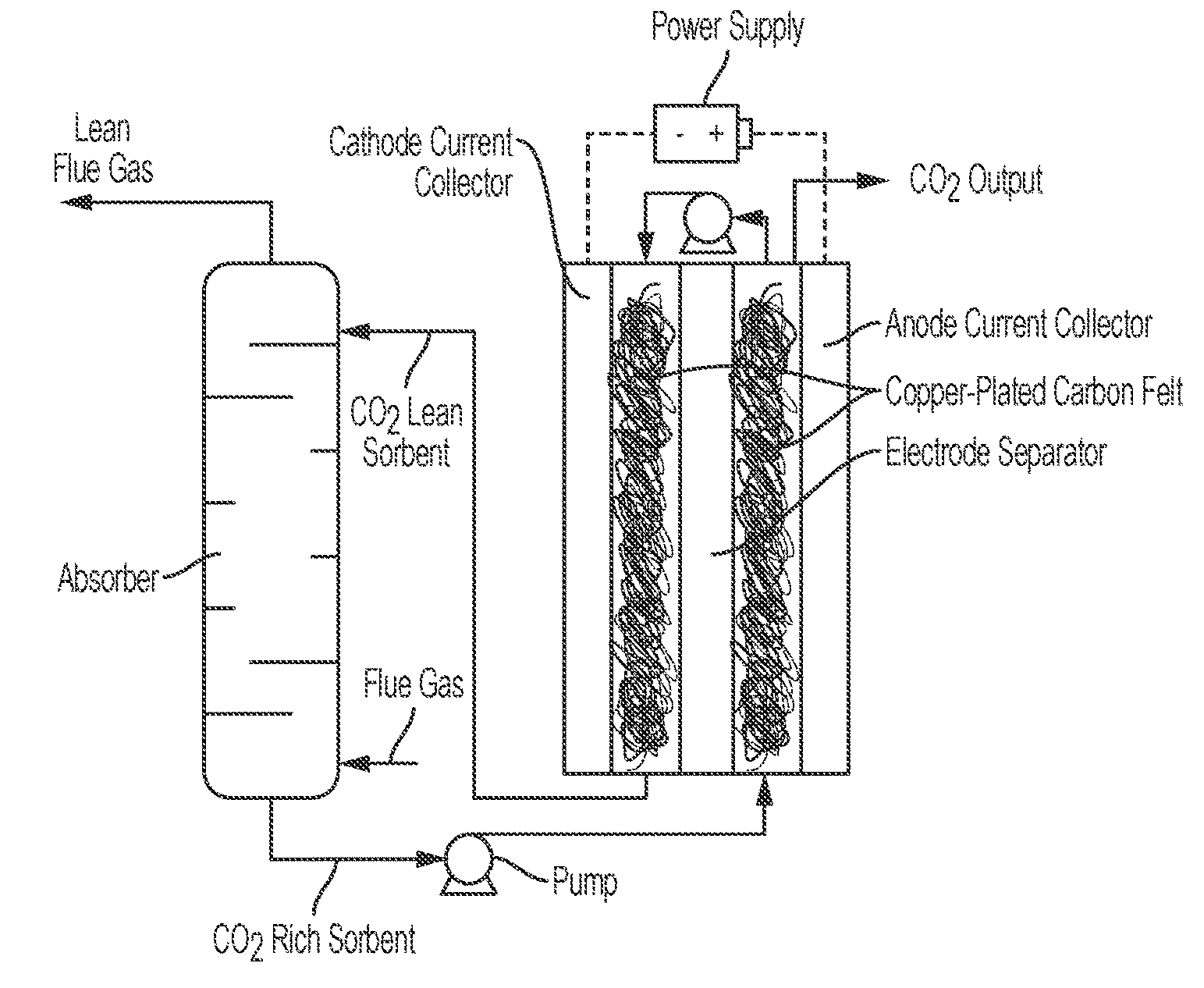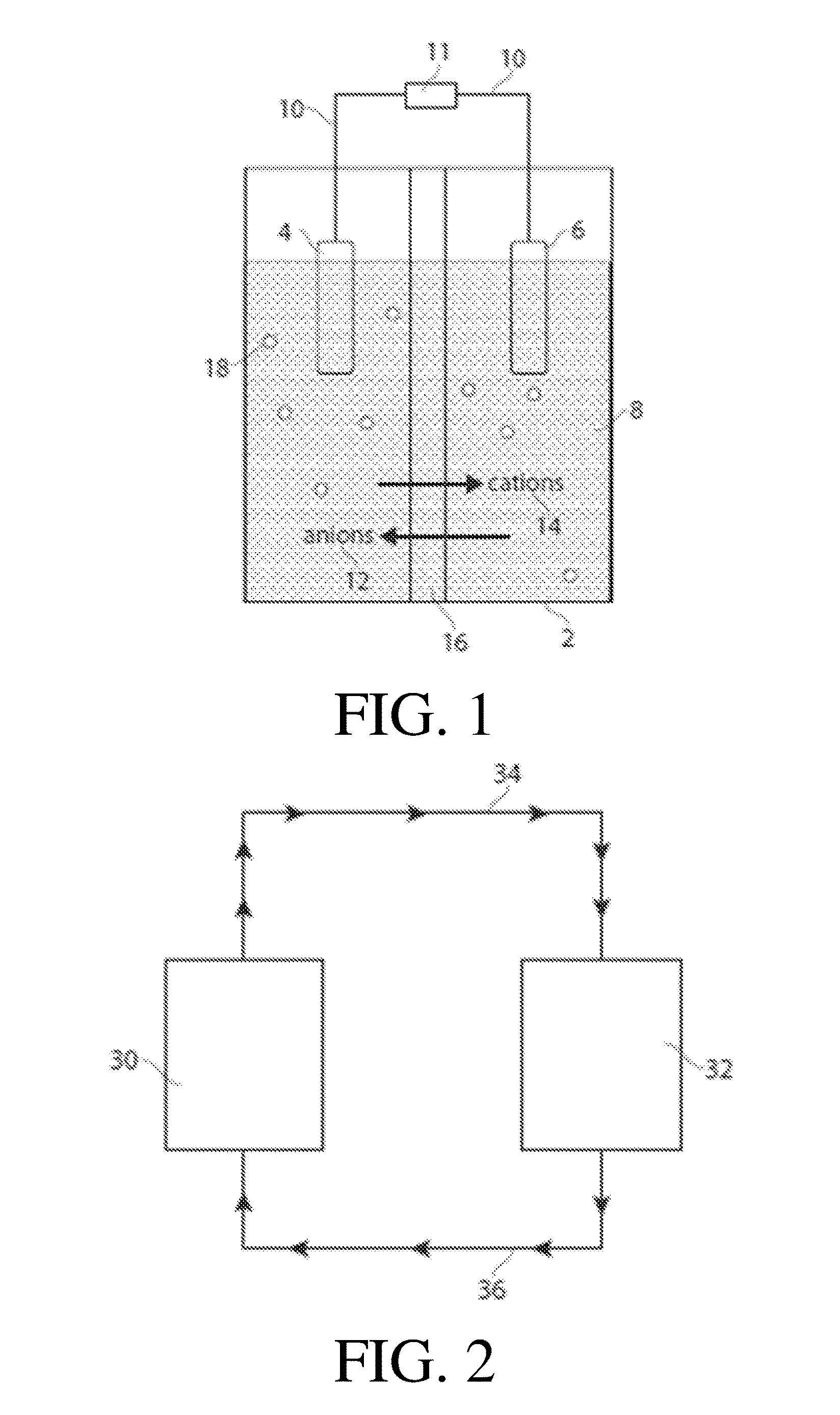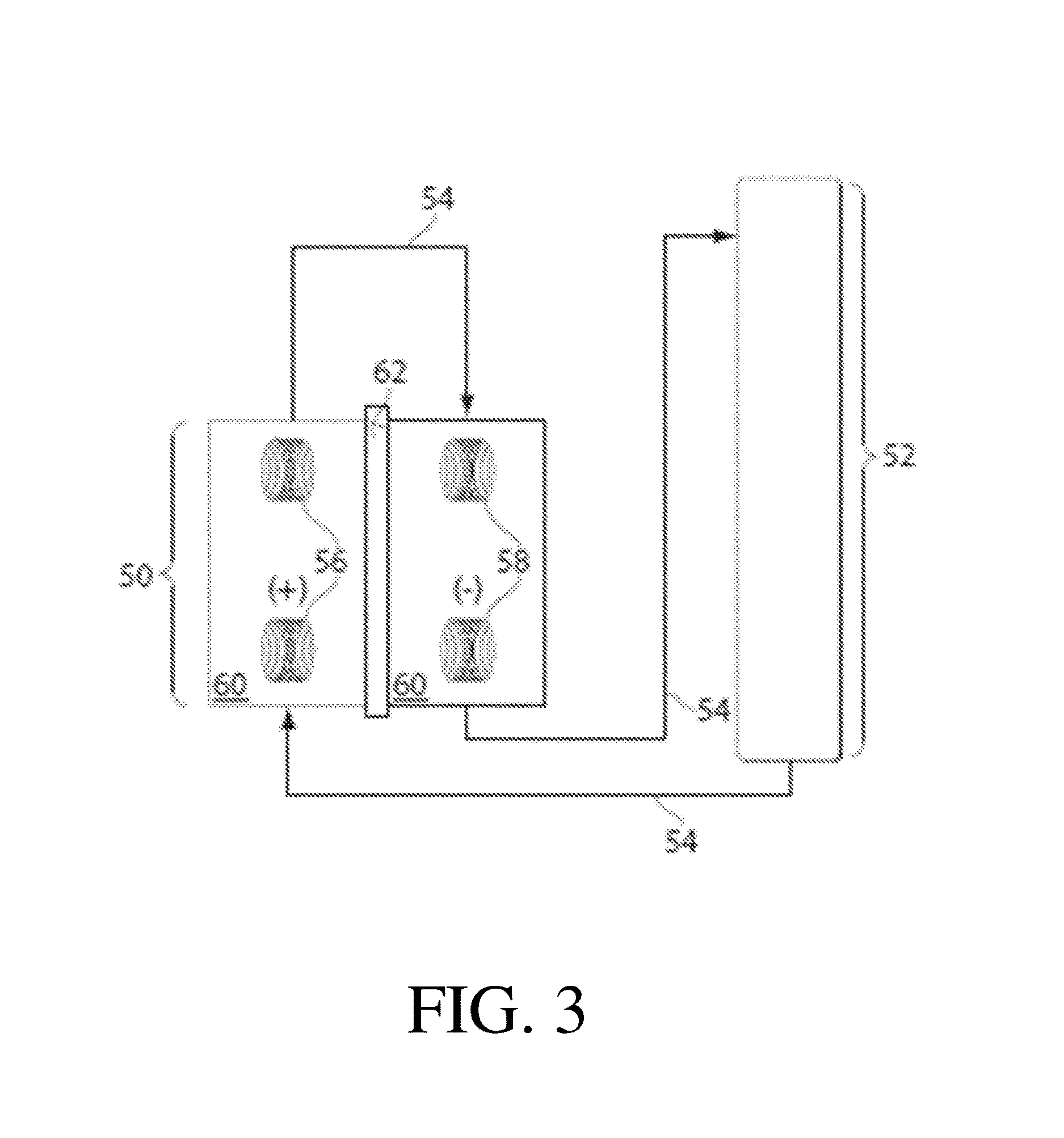Methods and systems for carrying out a pH-influenced chemical and/or biological reaction
a biological reaction and chemical reaction technology, applied in the field of methods and systems for carrying out a ph-influenced chemical and/or biological reaction, can solve the problems of current methods/systems, inability to carry out ph-influenced chemical and/or biological reactions, inaccurate and/or imprecise ph changes,
- Summary
- Abstract
- Description
- Claims
- Application Information
AI Technical Summary
Benefits of technology
Problems solved by technology
Method used
Image
Examples
example 1
[0108]This example describes a non-limiting system and / or method for affecting the pH of a solution. The system employed in depicted in FIG. 6 and described in the specification. For this experiment, a two-compartment flow cell with each compartment having approximately 20 mL of volume. One compartment contained a copper (Cu) electrode while the other contained a partially oxidized copper electrode. Partial oxidation was achieved via soaking the copper in a concentrated potassium hydroxide solution for several days. A black layer of copper oxide (CuO) was observed on the surface of the oxidized electrode. The two chambers were separated by a Nafion 117 membrane previously soaked in a potassium nitrate solution with a 20 cm2 working area. The chamber was flushed with copious amount of deionized water then 0.1 molar potassium nitrate.
[0109]A 0.1 molar potassium nitrate solution was injected into both sides of the flow cell simultaneously at 1 mL / min in each side for 50 minutes. A 10 m...
example 2
[0111]This example describes a non-limiting system and / or method for affecting the pH of a solution. For this experiment, a two-compartment flow cell with each compartment having approximately 20 mL of volume, each containing vitreous carbon foam electrodes, and being separated by a Nafion 117 membrane previously soaked in a concentrated sodium chloride solution was used. The chamber was flushed with copious amount of deionized water then 1 molar sodium chloride before being filled with the working solution. The working solution was contained 1 molar sodium chloride, 0.01 molar benzoquinone (BQ), and 0.01 molar hydroquinone (BQH2).
[0112]The working solution was injected into both sides of the flow cell simultaneously at 1 mL / min in each side for 40 minutes. A 10 mA current (0.5 mA / cm2 current density) was applied via a potentiostat to the system. Voltages increased to approximately 0.3 to 0.5 volts during the course of the experiment. Each outlet stream was fractionated into 5 mL sa...
example 3
[0114]For this experiment, a two-compartment flow cell with each compartment having approximately 20 mL of volume, each containing lead (Pb) electrodes, which had been partially oxidized. Oxidation was achieved via a potentiostat that applied a 2.5 volt potential difference between the lead electrode and piece of platinum foil for several hours. A dark brown layer of lead dioxide (PbO2) was observed on the outside of the electrodes. The two chambers were separated by a Nafion 117 membrane previously soaked in a concentrated sodium chloride solution with a 20 cm2 working area. The chamber was flushed with copious amount of deionized water then 0.3 molar sodium sulfate to remove any remaining chloride ions.
[0115]A 0.3 molar sodium sulfate solution was injected into both sides of the flow cell simultaneously at 1 mL / min in each side for 50 minutes. A 10 mA current (0.5 mA / cm2 current density) was applied via a potentiostat to the system. Voltages increased to approximately 2 volts to 3...
PUM
| Property | Measurement | Unit |
|---|---|---|
| current | aaaaa | aaaaa |
| electrical potential | aaaaa | aaaaa |
| temperature | aaaaa | aaaaa |
Abstract
Description
Claims
Application Information
 Login to View More
Login to View More - R&D
- Intellectual Property
- Life Sciences
- Materials
- Tech Scout
- Unparalleled Data Quality
- Higher Quality Content
- 60% Fewer Hallucinations
Browse by: Latest US Patents, China's latest patents, Technical Efficacy Thesaurus, Application Domain, Technology Topic, Popular Technical Reports.
© 2025 PatSnap. All rights reserved.Legal|Privacy policy|Modern Slavery Act Transparency Statement|Sitemap|About US| Contact US: help@patsnap.com



